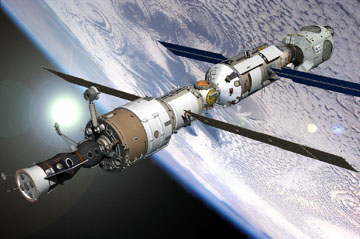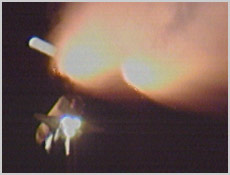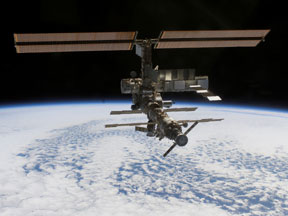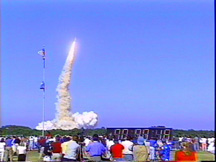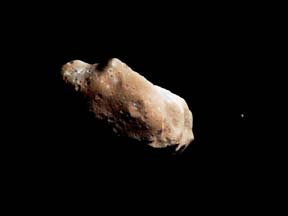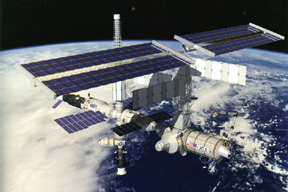Click on image for full size
Courtesy of NASA
Life Found on the ISS
News story originally written on November 20, 2000
Man has always been compelled to explore and inhabit previously unknown realms. As of this month, man is again inhabiting the daunting expanse we call space. Eight years after the initial agreement to pursue development of the International Space Station (ISS), three men made the ISS their home on November 2, 2000. For the next four months, Russian astronauts Yuri P. Gidzenko and Sergei K. Krikalev and American commander, William M. Shepherd, will call the ISS their home.
The building and inhabitation of the station has been an extremely long journey already fraught with many setbacks, delays, funding and political issues. It is with relief that the space agencies can say the station is finally inhabited. It is their hope that the station will remain inhabited continuously for at least the next 15 years. Upon arriving at the station Shepherd, a Navy officer on his fourth mission to space, commented, "We're just starting a long journey." Appropriately, the ISS has been officially named Alpha. Alpha is the first letter of the Greek alphabet and so denotes "a new beginning". It is also a neutral name in that it is neither English nor Russian.
The Alpha station is now the size of three school buses in length. In time, Gary Kitmacher, space and life sciences manager for the International Space Station manned operations at Johnson Space Center says, “it will be the size of a Boeing 747 and the length of a football field.” He also adds it will become the brightest object in the night sky next to the Sun and the Moon.
Shuttle Endeavour will dock with the space station December 2, 2000. This shuttle mission will bring supplies to the space station as well as the very important P6 Truss which will increase the ISS's power capability with its solar arrays. A new crew will come to live on Alpha in February.
NASA and the Russian space agency and the other 16 countries contributing to the building of the ISS hope that this station will open the door to long-term living on the Moon and Mars.


